Drinking ample water is essential for health, but the quality of the water is equally crucial. While some recommend consuming 0.3 to 0.6 gallons daily, the purity of this water is a major concern. No one prefers drinking contaminated water, risking their health. To ensure safety and purity, boiling and filtering are common practices. Debates abound regarding the superiority of boiled versus filtered water. This article explores which method—boiling or filtering—provides healthier and more beneficial water for consumption.
Pouring a glass of tap water is a daily routine, but its safety is often taken for granted. Despite general perceptions, tap water, drawn from various sources and traveling through pipes, can accumulate contaminants like heavy metals and bacteria. This raises concerns about the necessity of purifying drinking water. Although municipal water treatment systems filter water on a large scale, their effectiveness isn’t always consistent. Therefore, it’s prudent to consider additional in-home purification methods. Boiling water is commonly suggested, but its effectiveness in ensuring clean water is questionable.
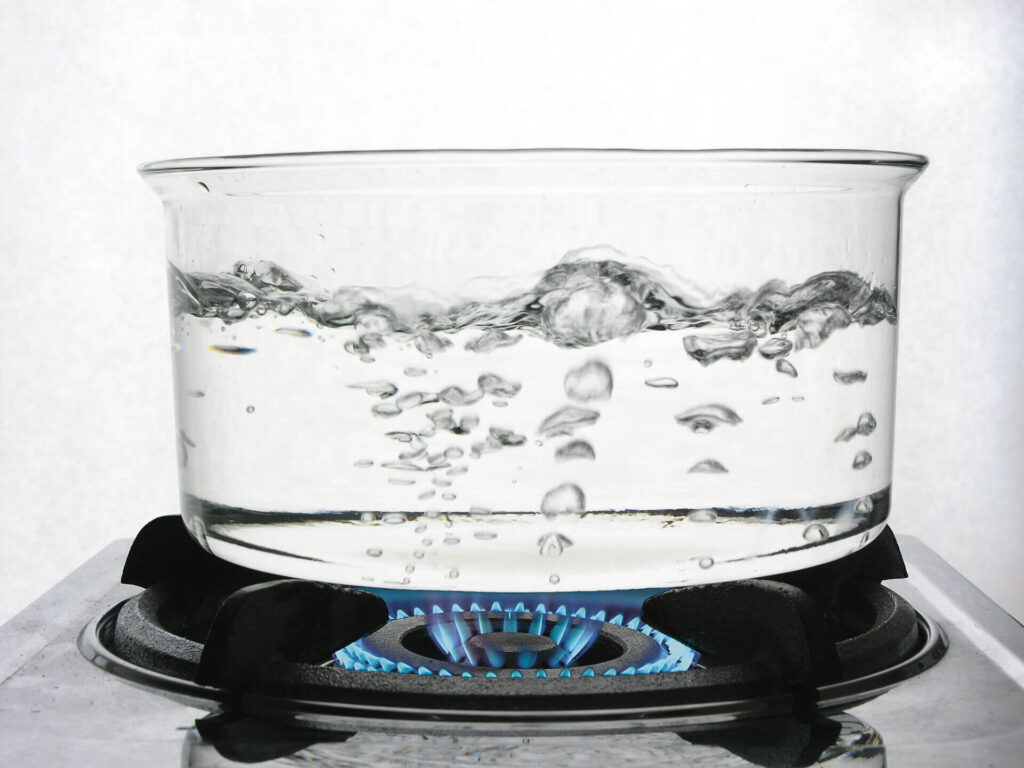
How to Boil Water?
If this is your only option, here’s how you boil tap water to help purify it according to the CDC:
For Cloudy Tap Water:
- Filter through a clean cloth, paper towel, or coffee filter to remove contaminants. If unavailable, let sediments settle.
- Pour the clearer water into a pot or pan.
- Boil vigorously for at least one minute, or three minutes if above 6,500 feet in elevation.
- Cool the water to a suitable temperature.
- Store in sanitized, tightly-sealed containers.
For Clear Tap Water:
- Bring the water to a rolling boil for the same duration.
- Follow steps 4 and 5 for cooling and storage.
This method ensures safe, purified water when boiling is the only option.
Boiled Water: Myths & Real Benefits
Boiling water is a common practice for various reasons, including making tea, cooking, and even purifying water. But, is boiling water truly safe for drinking? Boiling water at 100°C is effective in eliminating bacteria, pollutants, and other harmful microorganisms present in tap water. Despite the prevalence of kettles in most homes, boiling water should not be seen as a substitute for using water filters.
While boiling water does disinfect and kill bacteria, it doesn’t actually remove them from the water. Furthermore, this method fails to eliminate heavy metals and dissolved solids. Therefore, it’s not as thorough a purification method as one might think. On the bright side, boiling water does remove chlorine through evaporation, which is hastened by the boiling process.

Another benefit of boiling water is that it can make the water softer. However, achieving this requires extended boiling, for at least 15 minutes. Are you patient enough for this? If you are, it’s not a bad choice. Drinking warm water has its advantages, including boosting metabolism and aiding digestion.
Yet, when comparing boiling water to filtered water in terms of purification, does boiling water match up in efficacy and safety? Despite its benefits, boiling water doesn’t compare favorably to filtered water in this aspect. In the debate of boiled water vs filtered water, boiling falls short in terms of purification effectiveness.
The Hidden Risks of Boiling Water
Boiling tap water, while effective in disinfecting and removing chlorine, isn’t the most reliable method for ensuring safe drinking water. The key issue is that boiling doesn’t guarantee the elimination of all bacteria unless the water is boiled for a sufficient duration. Moreover, boiling has no effect on heavy metals and solid particles; they remain in the water regardless of the boiling process.
Another concern with boiling water is the reduction of oxygen content. Oxygen, vital for the human body, diminishes the longer water is boiled. Additionally, prolonged boiling can lead to the loss of essential vitamins and micronutrients. A significant risk associated with regularly consuming boiled water is the potential intake of concentrated heavy metals and minute particles of limescale.
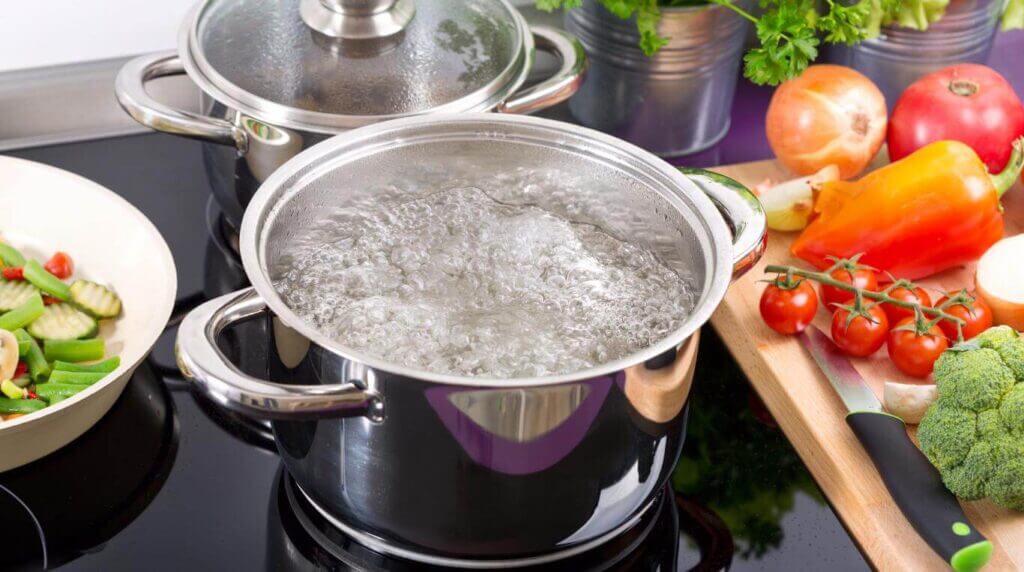
Therefore, the question arises: does boiling tap water make it pure enough for drinking? The answer is not quite straightforward. Boiling alone is insufficient for thorough purification. However, this doesn’t imply that you should stop enjoying your tea and coffee. The key is to be cautious about the quality of the water you’re boiling. It’s advisable to filter your water before boiling it, ensuring a safer and healthier cup every time.
Does Boiling Water Remove Chlorine?
Boiling water can remove some chlorine from water, but it may not remove all of it. Boiling water has the ability to partially or even completely eliminate chlorine, due to its volatile nature. Chlorine, being a chemical that evaporates readily upon heating, can be removed from water as it turns to steam during the boiling process. However, it’s important to note that boiling may not always remove all of the chlorine present in the water. Furthermore, when it comes to tap water that contains lead, boiling can inadvertently increase the concentration of this harmful contaminant. This means that boiling such water could potentially make it more hazardous than if it were left unboiled.
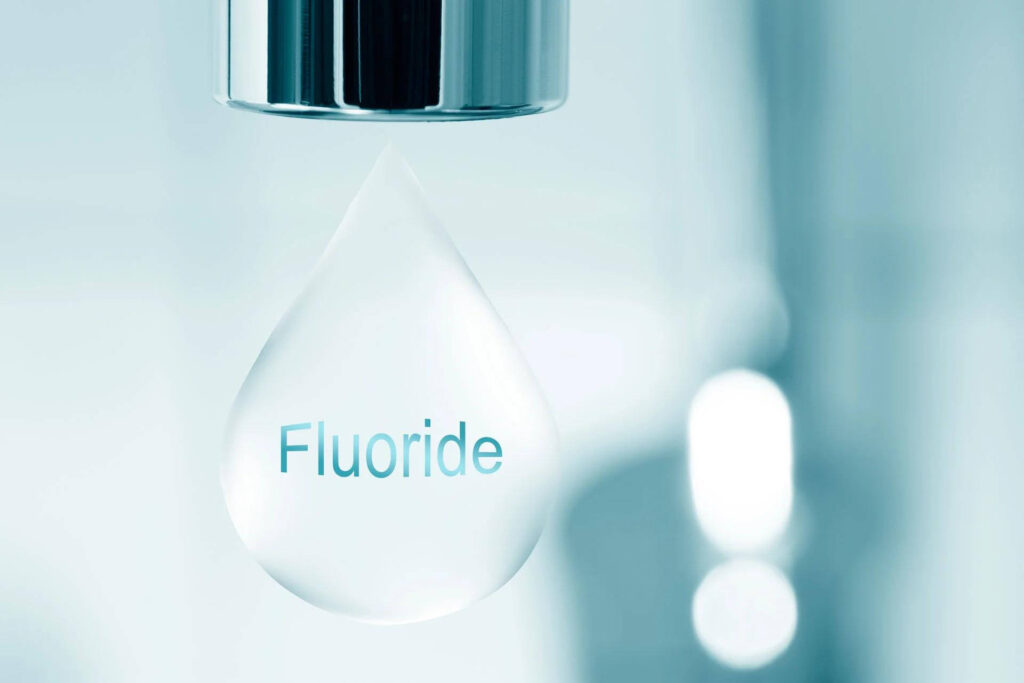
Does Boiling Water Remove Fluoride?
Boiling water is not an effective method for removing fluoride. Contrary to reducing fluoride levels, boiling can actually elevate them. This happens because as water boils and evaporates, the fluoride remains, becoming more concentrated in the remaining water.
For effectively removing fluoride from water, reverse osmosis is a reliable method. This process filters water by passing it through a semi-permeable membrane, effectively reducing fluoride content and delivering healthier, filtered water.
What is filtered water?
Filtered water refers to water that has been processed through a water filtration system. Various filtration systems and methods exist, each primarily designed to eliminate contaminants from domestic water sources.
Benefits of filtering tap water
The filtration of water is a quicker process compared to boiling, offering clean and healthy drinking water conveniently with just a press of a button or a turn of the faucet. Furthermore, filtered water typically meets higher quality standards than water purified solely by boiling. Organizations such as the National Sanitation Foundation (NSF) evaluate and rate water filters based on their effectiveness in removing contaminants. Drinking filtered water is not only healthier, but it also has benefits for skin care during showers and contributes to maintaining the freshness of clothes when used in laundry.
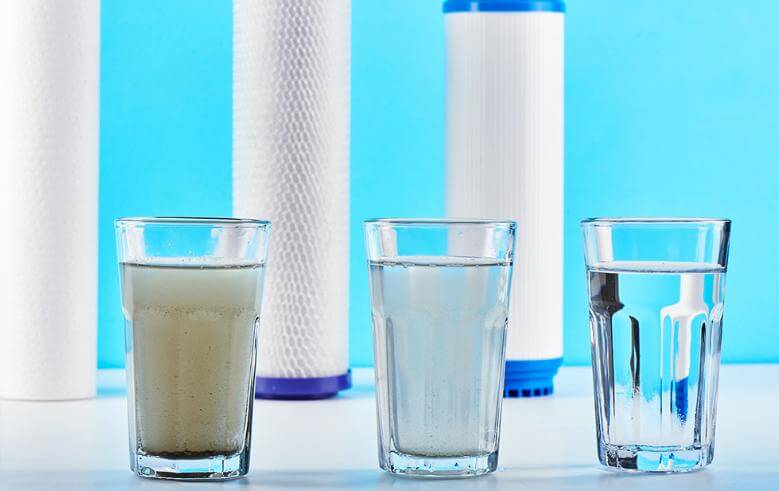
A wide range of Water filtration options, such as whole-house filters, sink filters and shower filters, also mean you can choose where and how you filter in your home.
Does Filtered Water Need Boiling?
Indeed, boiling water is essential for a good cup of tea, but is it necessary to boil water for purity? The debate between boiled and filtered water isn’t easily resolved. Water filters excel in purifying water more effectively than other methods. Basic filters remove small particles and chlorine, while advanced ones eliminate chemicals. However, not all filters guarantee complete water purification.
Some filters of poor quality are practically ineffective, equating to drinking straight from the tap. But, does boiling tap water make it safe for drinking? In this scenario, the answer is affirmative. Boiling tap water does offer disinfecting and purifying benefits. Moreover, it can enhance the filtration process and its health advantages when used in conjunction with a filter.
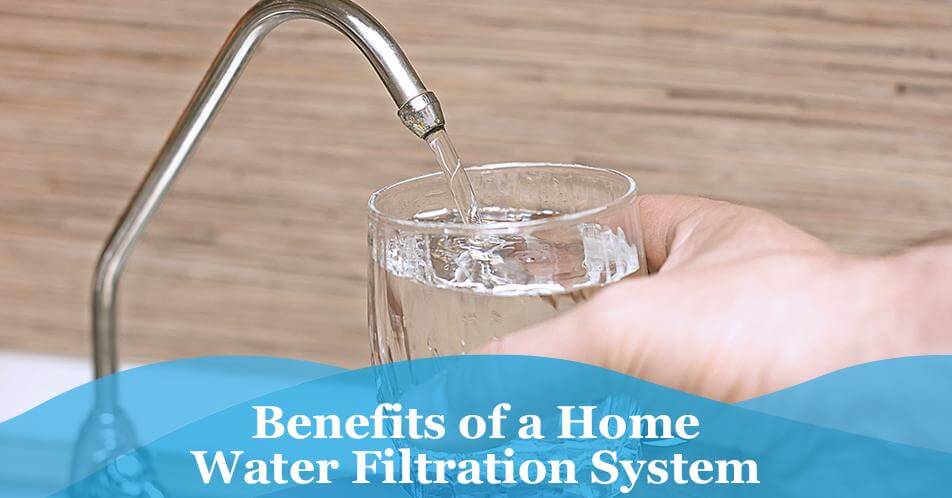
While boiling shouldn’t be dismissed as a method of purification, it certainly doesn’t equate to the effectiveness of filtered water. Filters are far more dependable and efficient in cleansing water. Boiling can purify water to a degree, but the result is often nutrient-deficient “dead” water, lacking beneficial microelements. To ensure that the water you consume is truly healthful, investing in a high-quality water filter is key.
In Summary
The debate between boiled and filtered water reveals distinct advantages and disadvantages for each method in terms of water purification and safety.
Boiled water is a traditional and simple method for purifying water, primarily by killing biological contaminants like viruses, bacteria, and spores. The process involves bringing water to a rolling boil, typically for at least one minute, which is effective in inactivating harmful microorganisms. Boiling is especially useful in emergency situations or where access to advanced filtration methods is limited. However, boiling does not remove chemical contaminants such as chlorine or heavy metals like lead. In fact, boiling can sometimes concentrate these chemicals in the water. Another downside is the energy cost associated with boiling and the time required for the water to cool down before it can be consumed.
Filtered water, on the other hand, offers a broader scope of purification. Different types of water filters can target a wide range of contaminants, including biological, chemical, radiological, and physical impurities. Advanced filtration methods, such as reverse osmosis and activated carbon filters, can remove or significantly reduce harmful substances like heavy metals, chlorine, pesticides, and even some microplastics. Filtered water systems are convenient, providing clean water on demand without the need for boiling and cooling. However, the initial cost of setting up a filtration system, along with ongoing maintenance and replacement of filter cartridges, can be a consideration.
In conclusion, while boiling water is effective for killing biological contaminants and is a good option in emergency situations, filtered water systems offer a more comprehensive solution for removing a wide array of impurities. The choice between boiling and filtering ultimately depends on the specific water quality issues you are facing and your individual needs.
